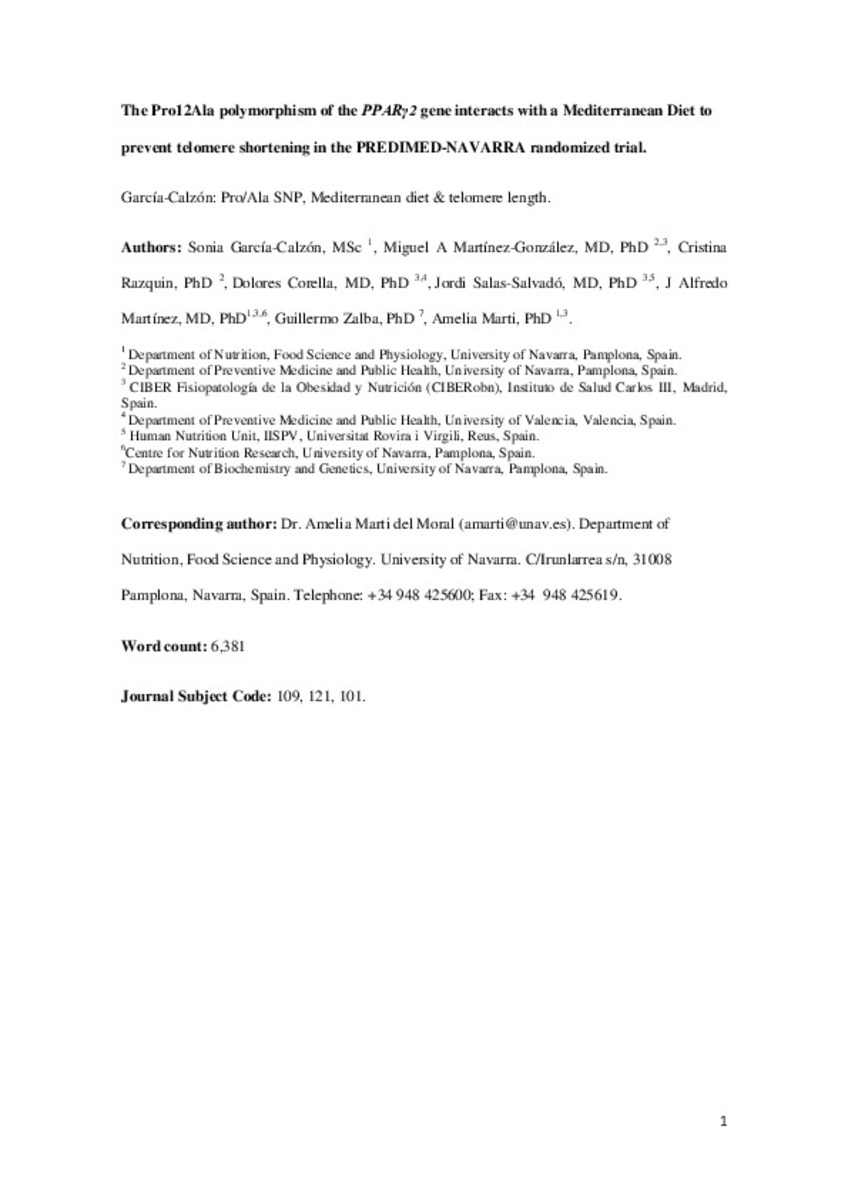The Pro12Ala polymorphism of the PPARγ2 gene interacts with a Mediterranean Diet to prevent telomere shortening in the PREDIMED-NAVARRA randomized trial
Keywords:
Nutrigenomics
Polymorphism
Telomere
Publisher:
American Heart Association
Project:
This research was funded by grants from Línea Especial, Nutrición, Obesidad y Salud of the University of Navarra (LE/97), the Spanish Government (FIS-ISCIII: PI051579, PI050976, PI070240, PI081943, PI1002293, RTIC 06/0045, CIBERobn, CNIC/06, SAF-2010-20367) and the Government of Navarra (PI41/2005, PI79/2006, PI36/2008, PI54/2009). The FPU fellowship to Sonia García-Calzón from the Spanish Ministry is gratefully acknowledged.
Citation:
García-Calzón S, Martínez-González M, Razquin C, Corella D, Salas-Salvadó J, Marti A, et al. The Pro12Ala polymorphism of the PPARγ2 gene interacts with a Mediterranean Diet to prevent telomere shortening in the PREDIMED-NAVARRA randomized trial. Circ Cardiovasc Genet (2014, Nov 18),
Statistics and impact
0 citas en

Items in Dadun are protected by copyright, with all rights reserved, unless otherwise indicated.









